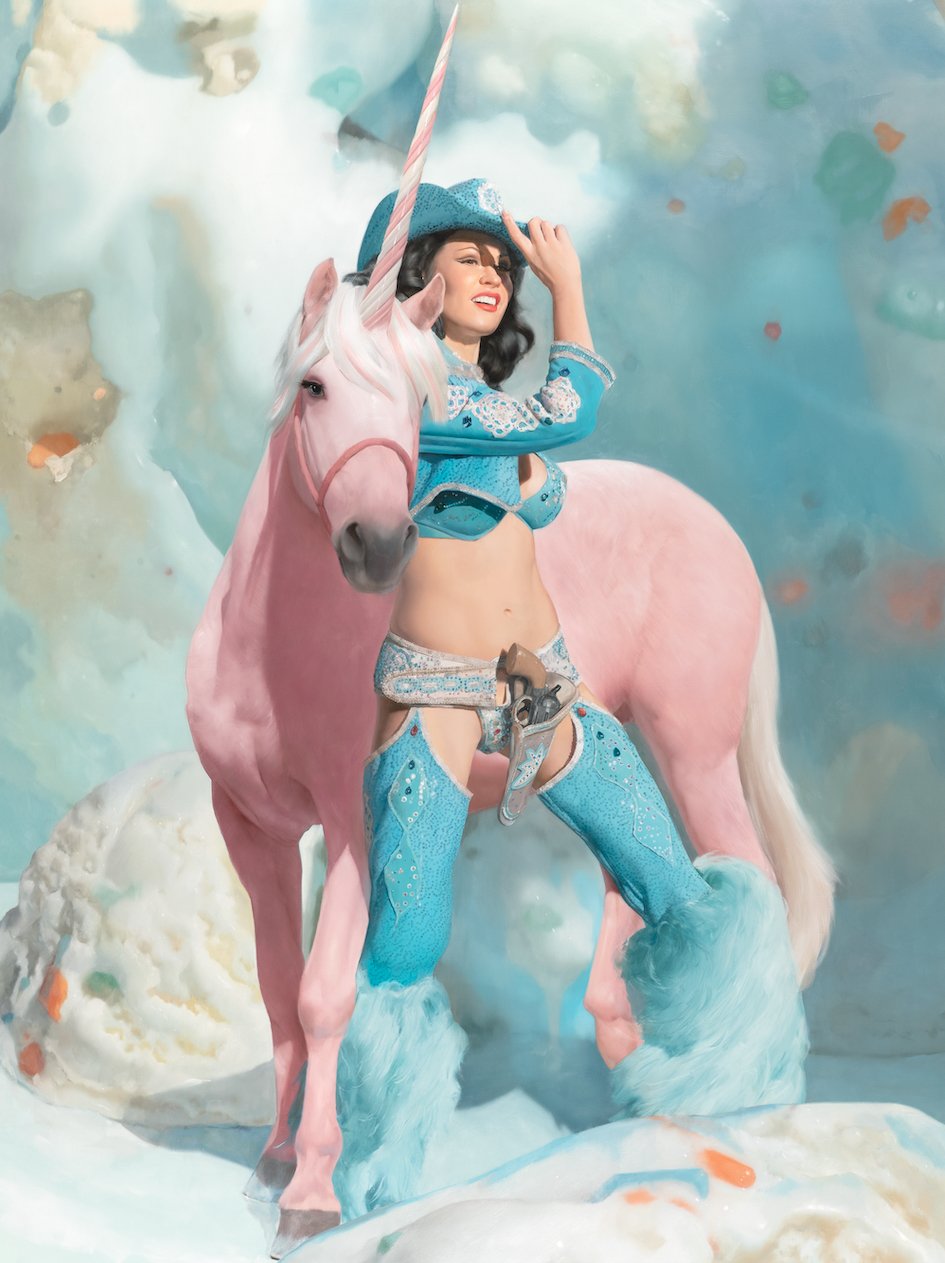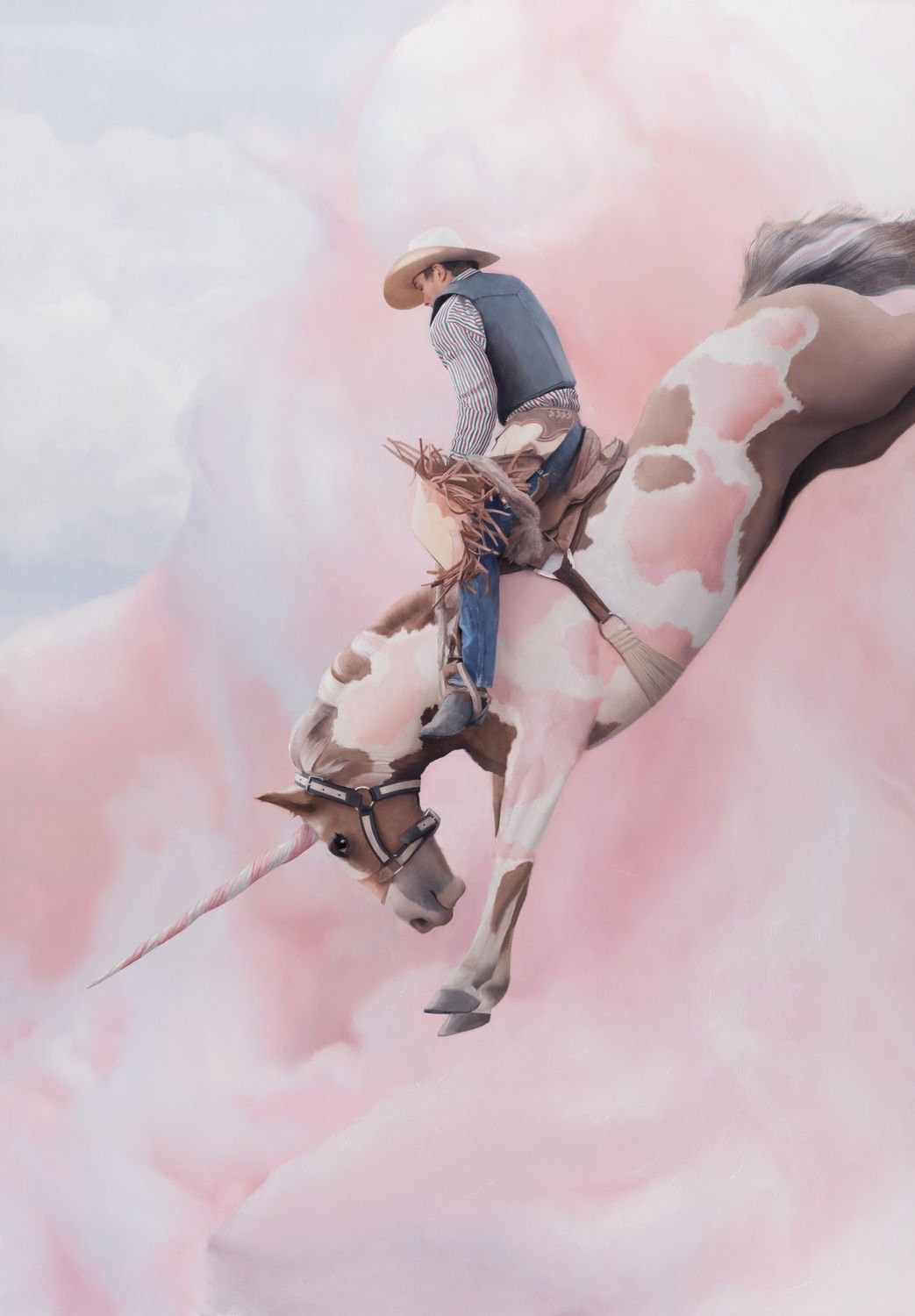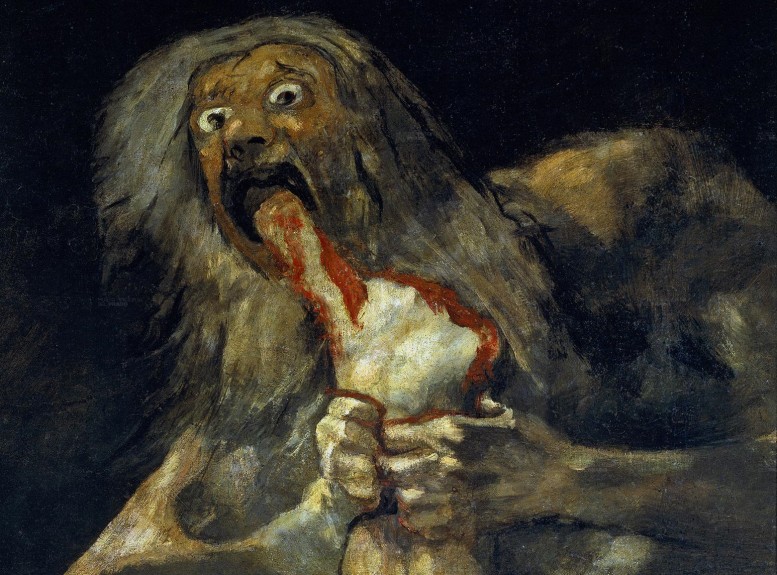Twenty years after his very first exhibition in Paris, New York painter Will Cotton, known for his depictions of sweets and cakes, is back on the walls of Galerie Templon with a subtle and quirky exhibition: Trigger.
In this new show, Will Cotton continues to reflect on pop culture and American myths. His 2020 series The Taming of the Cowboy, about the hyper-sexualisation of childhood and gender representations, featured ultra-masculine cowboys battling with pink unicorns. Will Cotton now introduces the cowgirl, an archetypal feminist figure, as voluptuous as she is provocative. With humour, she takes the opposite direction to the artist's usual female characters, pushing the gender boundaries further and blurring the relationship between the sexes as well as LGBT struggles and the notion of queerness.
The title of the exhibition is inspired by a notion that has become a political concept in the US: the trigger. It refers to the safe spaces created by the liberal left on American campuses in recent years. Trigger warnings are intended to prevent situations that could lead to post-traumatic stress disorder. However, in an America torn apart by the controversial issue of carrying weapons, the artist wonders if it is possible to dissociate it from the trigger of the firearms defended tooth and nail by the conservative right.
Will Cotton thus invents a world that mirrors our schizophrenic societies. His grandiose landscapes, with their cascading sweets and candy floss, are home to ambiguous scenes, playful but potentially disturbing or even explosive. A commentary on the opulence of an idealized America, Cotton's art is also a means of questioning the power of painting itself. The fluidity between great painting, timeless myths, advertising imagery and pop icons acts as a metaphor for the contradictions of our time.
Trigger is on view through July 22 @ Galerie Templon 30 Rue Beaubourg Paris.






